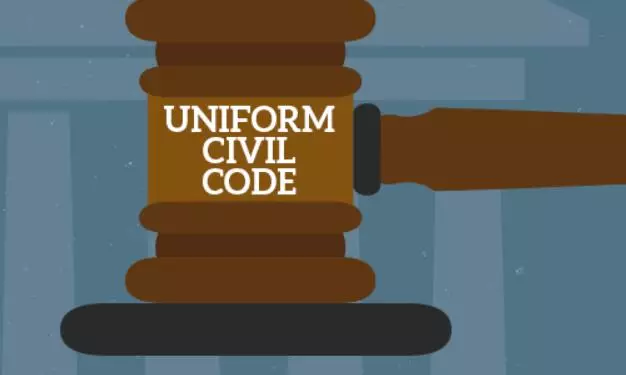
Assam repeals the Muslim Marriage Act
text_fieldsWith the Assam Cabinet deciding to repeal the Assam Muslim Marriage and Divorce Registration Act 1935 last Friday, another BJP-ruled state after Uttarakhand is paving the way for a Uniform Civil Code. Cabinet Minister Jayantha Malla Baruah and Chief Minister Himanta Biswas Sharma also made clear their eventual aim of a uniform civil code. It may be recalled that on February 7, Uttarakhand introduced a uniform civil code bill in the assembly and passed it. However, what the Assam government has done now is repeal the special marriage and divorce law for Muslims in the state, purportedly as a prelude to that. Once the Assam move is accomplished as law, the registration of Muslim marriages will be as per the Special Marriage Act, 1954. At present, there are 94 Muslim Marriage Registrars in the state authorised to register Muslim marriages. Their function will cease and marriages will be registered through government registrars. Muslim marriage registrars who are so thrown out of work will be given a one-time compensation of Rs 2 lakh each and the marriage records maintained by them will have to be transferred to district commissioners or District Registrars. It remains to be seen whether the proposed Uniform Civil Code will nullify the personal laws of non-Muslims. This is more relevant as the Hindu Marriage Act of 1955 is still in force and in addition, the government has said that tribals can continue to be governed by their traditional laws.
Also read: Delhi High Court declines to consider petitions for Uniform Civil Code
The BJP government in Assam has put forward its reasons to repeal the Muslim Marriage Act. First, according to the law to be repealed, contrary to national law, even if the bridegroom is under 21 and the bride is under 18, the marriage is registered and thus will stay valid. Child marriages that occur in this way can be prevented through new measures. Second, marriage registration is only optional, not mandatory under current law. Henceforth unregistered marriages can be prevented. Apart from this, the government is also saying that the current law was made during the colonial period. Since there is no logic in drawing a distinction between marriages during British period and post-independence, this specious argument is only a weak reasoning and part of the usual blaming of foreign rule for anything.
Also read: Karnataka lawyers urge Bar Council to drop event on UCC with Hindutva Advocate
It is clear that the Assam government is revoking the Muslim Marriage Act with the main aim of communal polarisation. Chief Minister Sharma has been making statements targeting the Muslim community for some time. The formula involved in this to portray Muslim community as a section enjoying some special rights and to give the impression that his government is putting an end to it. This is evidently a part of the campaign for the upcoming general election. The bill has been introduced to repeal a law which does not affect the majority community in any way, but is made to appear as though the BJP government has done something for them. This was passed in the cabinet meeting late on Friday night. It defies comprehension what the urgency was about. While on the one hand, it seeks to appease the majority community, on the other, the repeal seeks to make Muslims, who constitute 34 per cent of the state's population, feel insecure and deprive them of the socio-cultural identity. It fits in with the Hindutva movement's stand against India's secular-democratic system and of not allowing personal and family laws and religious rules that preserve their cultural identity. No spokesperson for the Assam government is seen to have spoken about what would happen to the existing Hindu Marriage Act (1955) if another uniform civil code was enacted. However, as a rule, any discussion surrounding a uniform civil code begins and ends around Muslim marriage, divorce, and inheritance laws. Here too, the same is happening.
Also read: Resolution against imposition of UCC in country moved in Kerala Assembly by CM
Interestingly, as per the current situation, there are two ways to register a marriage in Assam - either under the Special Marriage Act or under the Hindu Marriage Act. The sloganeering demand of the Hindutva leadership for a uniform civil code is now coming through in strange ways. If the uniform civil code is implemented in this way, the country will have to bear the burden of one or two dozen general civil codes, one in Goa, another in Uttarakhand, yet another in Gujarat, and one in Assam. When would the champions of HIndutva recognise that uniform civil code is not one that will come into being by liquidating Muslim personal law and that its introduction would spell the painful rejection of cultural diversity of the nation !























